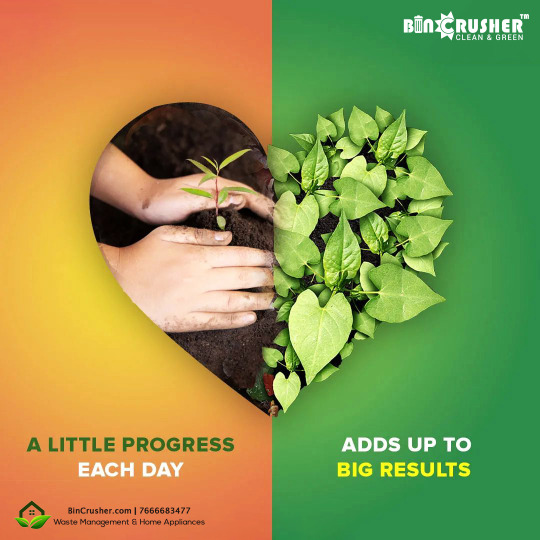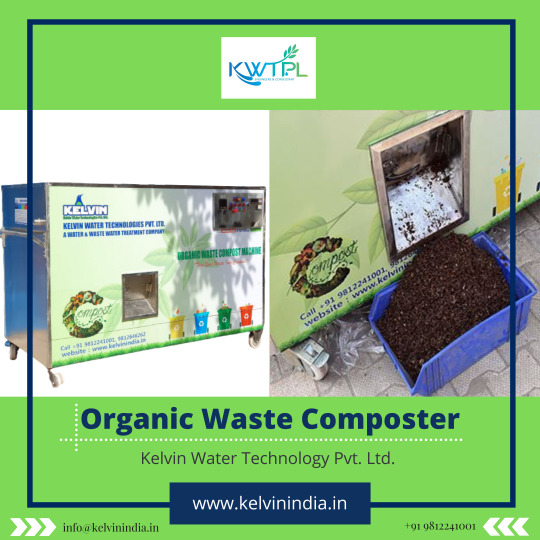#Organicwastecomposter
Explore tagged Tumblr posts
Text
Best Food Waste Recycling Machine Manufacturers – Pune

Revolutionize your waste management approach with AGM Enviro Engineers' advanced Organic Waste Composter solutions. Our cutting-edge composting technology efficiently transforms organic waste into nutrient-rich compost, fostering sustainable practices for a greener future. As a leading provider in the industry, we specialize in delivering customized composting solutions for diverse sectors, ensuring efficient organic waste conversion, reduced environmental impact, and compliance with sustainability goals.
Discover how our Organic Waste Composter solutions can optimize your waste management strategy, contributing to a healthier planet and a more sustainable tomorrow. Contact AGM Enviro Engineers for innovative and eco-friendly waste solutions tailored to your unique needs.
2 notes
·
View notes
Text
Waste Management: A Comprehensive Guide to Sustainable Solutions
Introduction:
Waste management is a critical aspect of environmental stewardship, encompassing the collection, transportation, processing, recycling, and disposal of waste materials generated by human activities. In today's world, where population growth and rapid urbanization are driving increased consumption and waste generation, effective waste management practices are more crucial than ever. This guide explores the various components of waste management and highlights sustainable solutions to address the growing challenges of waste disposal and environmental degradation.
Understanding Waste:
Before delving into waste management strategies, it's essential to understand the different types of waste and their characteristics. Waste can be broadly classified into several categories:
Municipal Solid Waste (MSW): This includes household waste, such as food scraps, packaging materials, paper, plastics, glass, and other discarded items.
Industrial Waste: Generated by manufacturing, industrial processes, and construction activities, industrial waste can include hazardous materials, chemical byproducts, and non-recyclable materials.
Electronic Waste (E-waste): E-waste comprises discarded electronic devices and equipment, such as computers, smartphones, televisions, and appliances, which contain valuable metals and toxic components.
Hazardous Waste: Hazardous waste poses significant risks to human health and the environment due to its toxic, flammable, corrosive, or reactive properties. Examples include chemicals, batteries, pesticides, and medical waste.
Organic Waste: Organic waste consists of biodegradable materials derived from plants or animals, such as food scraps, yard waste, and agricultural residues.
Waste Management Strategies:
Waste Reduction and Prevention: The most effective way to manage waste is to prevent its generation in the first place. Waste reduction strategies include product redesign, packaging minimization, promoting reuse and repair, and adopting sustainable consumption habits.
Recycling and Resource Recovery: Recycling involves collecting, sorting, and processing recyclable materials to manufacture new products. Common recyclable materials include paper, cardboard, plastics, glass, and metals. Recycling conserves natural resources, reduces energy consumption, and minimizes the need for landfill space.
Composting: Composting is the natural process of decomposing organic waste into nutrient-rich compost, which can be used to enrich soil and support plant growth. Composting reduces methane emissions from landfills, improves soil health, and closes the nutrient loop in ecosystems.
Energy Recovery: Waste-to-energy (WTE) technologies convert non-recyclable waste into heat, electricity, or fuel through incineration, gasification, or anaerobic digestion. WTE facilities help reduce greenhouse gas emissions, minimize landfilling, and generate renewable energy.
Landfill Management: Landfills are the final disposal option for waste that cannot be recycled, composted, or converted into energy. Proper landfill management practices, such as site selection, liner installation, leachate collection, and methane capture, are essential to prevent environmental contamination and mitigate impacts on surrounding communities.
Sustainable Waste Management Practices:
1. Integrated Waste Management: A holistic approach that combines multiple waste management strategies, such as waste reduction, recycling, composting, and energy recovery, to minimize environmental impact and maximize resource efficiency.
2. Extended Producer Responsibility (EPR): EPR policies hold manufacturers responsible for the entire lifecycle of their products, including collection, recycling, and proper disposal of end-of-life products. EPR incentivizes product design for recyclability and promotes the development of circular economy models.
3. Community Engagement and Education: Public awareness campaigns, educational programs, and community outreach initiatives play a vital role in promoting waste reduction, recycling, and sustainable consumption behaviors. Engaging citizens and stakeholders fosters a culture of environmental responsibility and collective action.
4. Technological Innovation: Advances in waste management technologies, such as sensor-based sorting systems, robotic automation, and data analytics, are driving efficiency gains and improving the effectiveness of waste processing and recycling operations.
Conclusion:
Effective waste management system is essential for preserving natural resources, protecting public health, and mitigating environmental pollution and climate change impacts. By embracing sustainable waste management practices and adopting innovative solutions, we can create a more resilient and regenerative future for generations to come. Together, let's work towards a world where waste is minimized, resources are conserved, and ecosystems thrive in harmony with human activities.
0 notes
Video
youtube
650 kg - Organic Waste Invessel Composter (OWC Machine) - Natural Drum Composter
#owcmachine#organicwastecomposter#owc#wastemanagement#composting#zerowaste#naturalcomposter#foodwastecomposter#compost#medicalwasteincinerators#Compostermachines
0 notes
Photo

Composting is the best way to handle the waste. Composting reduces the methane emissions in the air due to food dumped in landfills. Composting is a way to keep greenhouse gases in check.
Visit https://www.mechanicakaksh.com/
Call us @ +91-7669926699
Mail id - [email protected]
1 note
·
View note
Text

Compost today for a greener planet tomorrow! Organic Compost Machine . . .
#Bincrusher#CompostingMachine#Composter#FoodWaste#StartComposting#sustainability#StartCompost#OrganicWasteComposter#OrganicWaste#Ecofriendly
0 notes
Photo

Organic Waste Composter (OWC) from Kelvin Water Tech is an advanced waste management machine that efficiently converts organic waste into high-quality compost in just 24 hours.
0 notes
Text
OWC Machine Manufacturer in India

Kelvin water technologies are the leading manufacturer, supplier & service provider of OWC Machine in India.
#OWC Manufacturer#Organicwastecomposter#organicwastecompostermachine#OWC Machine Organic waste converter
0 notes
Text
Different types of Composting

Composting is the natural process by which organic material is broken down in order to be consumed by plants. It is a great way to add nutritional value back to soil and is better for plants instead of traditional fertilizers. Farms, houses, restaurants, schools, offices and places of business all produce compostable material every day of the week. Materials like food scraps, grass shavings, dead leaves, coffee grounds etc. can all be composted.
Primarily, there are three kinds of composting: aerobic, anaerobic and vermicomposting. Each one has its own set of advantages and disadvantages.
Aerobic composting
In aerobic composting, air is introduced into the mix to help break down the compostable material faster. In this process, the compost pile will need to be turned every two or three days. People who opt for this type of composting usually use a ‘tumble style’ composter to make their work easier. Green matter like grass clippings are rich in nitrogen and can also be added to speed up the process.
As the bacteria breaks down the materials rich in nitrogen, the temperature of the compost pile will get higher. Also, moisture may need to be added from a hose or a watering can. It is important to turn and moisturise the compost pile regularly or else the compost may give off a bad smell.
In case the compost pile is slowly shrinking, the aerobicizers can be energized by providing the pile with more oxygen. Simply turn the pile once every day for a week or more. In case the pile is in a tumbler, give it a spin.
Anaerobic composting
Compared to aerobic, anaerobic composting takes little to no effort to do. Simply toss scraps into a compost pile or composter and leave it alone for a year or longer. Here, the majority of the chemical energy contained in the organic material is released by bacteria in the form of methane.
This process is characterized by very strong smells. Because there is only a small amount of heat generated, it takes very long for the compost pile to become hot enough to kill plant pathogens, weeds and seeds. External heat is normally added to help overcome these limitations.
Vermicomposting
Vermicomposting uses worms, moisture and oxygen to safely break down organic material with only a few odours. Here, the worms and the bacteria work together to help breakdown the organic waste. Red worms are particularly useful for this type of composting. Compared to aerobic and anaerobic, vermicomposting is more preferable.
Composting worms love eating non-acidic vegetables and fruit scraps left over from the kitchen or garden. They also enjoy eating grains like rice, bread, oats and pasta. Just remember not to include any oily food, meat or dairy products for vermicomposting.
Manure from cows, horses and rabbits that’s been aged a few days can also help the composting process. Additionally, eggshells can be used to balance the bin’s PH levels. Fallen leaves and grass clippings in small quantities also help speed the process along.
Biochest uses the aerobic composting process to provide nutrient-rich compost for plants, without any of the odours that normally come from this method. What’s more is that any kind of organic material can be added and the result will be the same.
0 notes
Photo

Thinking of the best #organicwaste Management solution?
We Kelvin Water Technologies Pvt. Ltd. offers turnkey Solutions for Managing organic waste by simply converting them into compost in just 24 hours with our newly designed Organic Waste Composter (OWC) Machine ranges from 25kg to 10,000kg according to waste size and user requirement.
#organicwastecomposter#owcmachine#owcmanufacturer#wastemanagement#recycle#reuse#sustainability#ecofriendly#savetheearth
0 notes
Video
tumblr
Turnkey Solution for by converting them into compost in just 24 hours through Kelvin's advanced Organic Waste Composter machine without affecting the environment or any foul smell & noise.
#organicwaste#organicwastecomposter#sustainableliving#ecofriendly#environment#savetheearth#nature#zerowaste#gogreen
0 notes
Photo

Delivery of 500 kg/day Organic Waste Composter Machine (OWC) for converting organic waste such as grass, leaves, bones, kitchen leftovers, fish, etc into high-quality compost that can be used for gardening & selling in the open market.
#organicwastecomposter#owcmachine#organicwaste#wastemanagement#recycling#reuse#sustainability#gogreen#owcmachinemanufacturer
0 notes
Video
tumblr
Why face problems from organic waste in your area when we Kelvin Water Tech offers an advanced Organic Waste Composter machine that converts your organic waste into compost in just 24 hours without affecting the environment.
#organicwastecomposter#compostermachine#wastemanagement#environment#owcmachine#ecofriendly#ecoliving#zerowaste
0 notes
Photo

Kelvin offers all solutions for water, wastewater & solid waste management system. Our research & development team is working 24*7 on waste management products to offer high-quality & advanced technology products that cannot be matched by anybody.
#organicwaste#organicwastecomposter#organicwastecompostermachine#owcmachinemanufacturer#wastewater#wastewatertreatment#environment
0 notes
Photo

Organic Waste Composter Machine
We Kelvin Water Technologies Pvt. Ltd. manufactured variety of waste handling products like OWC Machine, Incinerator Shredder, Bailing Press Machine, etc...learn more: https://kelvinindia.in/organic-waste
#organicwastecomposter#organicwastecompostermachine#owc#owcmachine#organicwastecompostermanufacturer#wastemangement#wastemanagementsystem#solidwastetreatment
0 notes
Link
#wastemanagement#organicwastecomposting#environment#gogreen#ecofriendly#wastemanagementsystem#owcmachine#owcplant
0 notes
Text

BinCrusher Composter can convert all kinds of organic waste into compost for gardens or plants. Waste products such as:
Leaves
Cardboard boxes
Waste plants
Vegetable scraps
and much more can be turned into compost with BinCrusher.
Organic Compost Machine
#organiccompostmachine #naturalfertilizer #compost #environmentallyfriendly #organicwastecomposter #solidwastecomposter #composter
0 notes